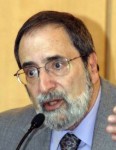By Laurie Baron

SAN DIEGO — Although I usually review films that deal with Jewish themes, I’m devoting this week’s column to The Butler (the director’s name was added to the title because Warner Brothers sued over copyright infringement of a silent movie entitled The Butler) because it has been the number one box-office film in the United States since its premier earlier this month. Based on the career of Eugene Allen, who starting working in the pantry at the White House in 1952 and rose to the position of maître d’hôtel there before he retired in 1986, the movie was inspired by Wil Haygood’s 2008 Washington Post article about Allen which the author recently expanded into the book The Butler: A Witness to History (Atria: 2013).
Taking many liberties with Allen’s biography, Daniels embroiders it into the evolution of the Civil Rights Movement and American politics during his lengthy White House tenure. Renamed Cecil Gaines and played with admirable and affecting restraint by Forest Whitaker, Gaines becomes the proverbial fly on the wall a la Forest Gump who always happens upon events of historic importance. He eavesdrops on presidents from Eisenhower to Reagan as they decide federal policy on desegregation, the Voting Rights Act, the Vietnam War, Watergate, and the boycott of South Africa.
Trained to never engage in political discussions or show his emotions, Gaines’s deferential civility is intercut with the passionate involvement of his son Louis (David Oyelowo) in the sit-ins, freedom rides, Black Panthers, and anti-Apartheid movement. Their disagreements over how black people should comport themselves are intensified by the assassinations of John F. Kennedy, Martin Luther King Jr., and Black Panther leaders. The estrangement between father and son over their respective responses to the plight of African Americans, and the enduring but often tense marriage between Gaines and his wife Gloria, a role which Oprah Winfrey invests with much pathos, drive the plot.
Gaines grew up as a houseboy on a plantation in the Jim Crow South. Although his father was not killed or his mother raped as presented in the film, he clearly experienced the indignities of racism and put on his public façade of docility to gain the trust of the white people he served. His son witnessed the birth pangs of the Civil Rights Movement and expected the progressive changes it promised to bring to be quicker and more sweeping. Daniels shows Martin Luther King Jr. building a bridge between the two generations by observing how black domestic servants played a “quietly subversive” role in gradually breaking down “hardened and hateful attitudes.”
The Butler has many unlikely cameo performances. Looking more like Dick Cheney, Robin Williams appears as Eisenhower. John Cusack captures the sleaziness, if not the physical resemblance, of Richard Nixon. James Marsden is a passable JFK, and Liev Schreiber as LBJ gives one of his infamous impromptu press conferences while sitting on the toilet. Alan Rickman has Reagan’s voice, but not his face. To the dismay of partisans who cannot forget a grudge, Jane Fonda epitomizes gentility as Nancy Reagan. I surmise that such casting will spoil the movie for those seeking more historical authenticity.
Nevertheless, is doesn’t diminish the significance of the protracted struggle for racial equality in the United States which The Butler portrays. Critics of the movie have compared it to The Help and 42 for revolving around past victories for civil rights and featuring non-threatening black protagonists. Since the movie ends with Cecil attending Obama’s inauguration in 2009, it could be interpreted as conveying that racism has been overcome. Cecil’s eventual empathy for Louis’ activism and what the audience knows has transpired since Obama’s election, however, belie this sanguine conclusion. As German Jews learned after Hitler assumed power in 1933, the gains wrested in the past can be reversed. The Butler provides a snapshot of what has been achieved with great sacrifice by political organization and protest, but the battle continues over economic justice, immigration reform, racial profiling, and voter suppression.
*
Baron is a professor emeritus of history at San Diego State University. He may be contacted at lawrence.baron@sdjewishworld.com